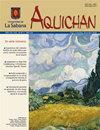Women’s Experiences in the Childbirth Care Process: An Integrative Review
Q3 Nursing
引用次数: 0
Abstract
Introduction: Childbirth is recognized as a physiological process essential to procreation and societal development. Nevertheless, it often lacks adequate discussion on humanized care practices. Therefore, it is necessary to identify women’s experiences during vaginal birth care to create practices that ensure better quality care. Objective: To characterize scientific evidence related to women’s experiences during vaginal birth care. Materials and Methods: An integrative review was conducted following Cooper’s methodology; six databases were reviewed: Cochrane, PubMed, Science Direct, Springer, Scopus, and Cinahl, using the descriptors: Normal Birth; Humanized Birth; Humanization of Care; Obstetric Violence; Qualitative Research, in Spanish, English, and Portuguese, limited to the 2010-2023 period, with the following inclusion/exclusion criteria: Qualitative full-text articles on vaginal births with a score of 8 or higher according to CASPe. Results: Six thematic units emerged: microaggressions and macro-impacts: childbirth: between pain and fear; acting with respect: childbirth as a natural process; silencing, enduring, and bearing; my birth, my choice; making the invisible visible: normalizing violence during childbirth; and the ritual of childbirth: women’s dignity. Conclusions: Women’s childbirth experiences are influenced by the cultural contexts in which they live; the biomedical model and traditional practices clash and impact women’s lives. Women must know their reproductive rights to contribute to a humanized childbirth.妇女在分娩护理过程中的体验:综合评论
引言分娩被认为是生育和社会发展必不可少的生理过程。然而,人们往往缺乏对人性化护理实践的充分讨论。因此,有必要了解妇女在阴道分娩护理过程中的体验,从而制定出确保更高质量护理的做法。目的分析与妇女在阴道分娩护理过程中的体验相关的科学证据。材料与方法:按照库珀的方法进行了综合回顾;回顾了六个数据库:Cochrane、PubMed、Science Direct、Springer、Scopus 和 Cinahl:正常分娩;人性化分娩;人性化护理;产科暴力;定性研究,使用西班牙语、英语和葡萄牙语,时间限于 2010-2023 年,纳入/排除标准如下:有关阴道分娩的定性全文文章,且根据 CASPe 得分为 8 分或以上。结果形成了六个主题单元:微观侵害和宏观影响:分娩:在疼痛和恐惧之间;以尊重的态度行事:分娩是一个自然过程;沉默、忍受和承受;我的分娩,我的选择;让无形可见:分娩过程中的暴力正常化;以及分娩仪式:女性的尊严。结论:妇女的分娩经历受到其生活的文化背景的影响;生物医学模式和传统习俗相互冲突,影响着妇女的生活。妇女必须了解自己的生殖权利,以促进人性化分娩。
本文章由计算机程序翻译,如有差异,请以英文原文为准。
求助全文
约1分钟内获得全文
求助全文
来源期刊

Aquichan
NURSING-
CiteScore
1.10
自引率
0.00%
发文量
32
审稿时长
>12 weeks
期刊介绍:
Aquichan, a journal of medical and health sciences from the field of health sciences and, more specifically, nursing, publishes articles resulting from investigations from a point of view of epistemology, evidence-based practice, chronic care, promotion and prevention. The articles are for the academic and scientific community, both in Colombia and abroad.
The journal accepts original, previously unpublished papers in Spanish, English, and Portuguese, which are the product of a research or a review and which are not being evaluated by other scientific journals, either in print or electronic form.
 求助内容:
求助内容: 应助结果提醒方式:
应助结果提醒方式:


